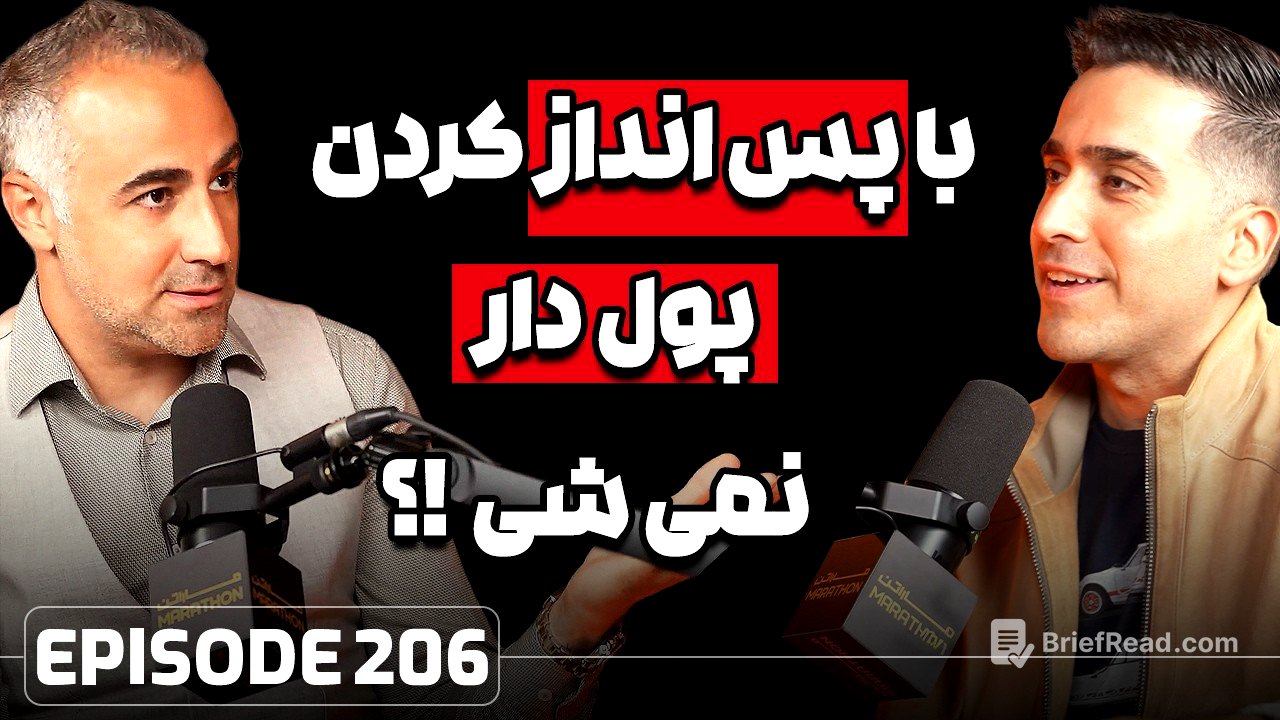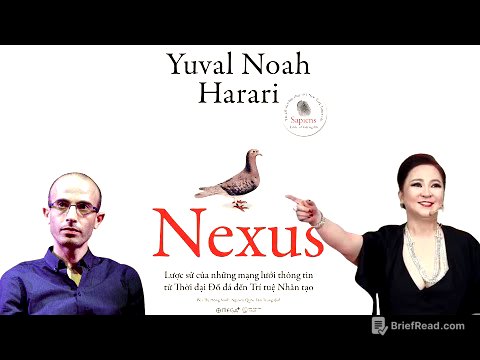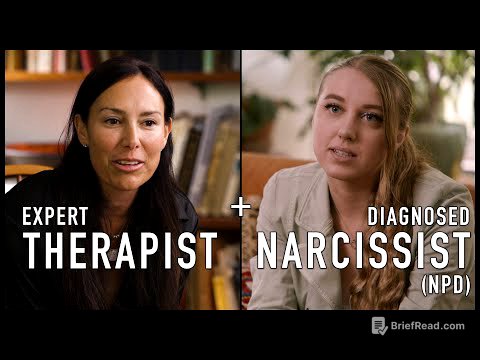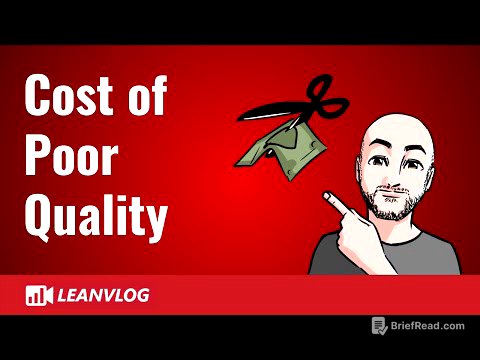TLDR;
This podcast episode explores the story of money, its cultural perception, and practical strategies for financial success. It emphasizes the importance of mindset, investing early, understanding good and bad debt, and navigating the stock market and crypto investments. The guest shares personal experiences and actionable advice to empower listeners to achieve financial freedom.
- Changing mindset about money is the first step to financial freedom.
- Start investing early and consistently, even with small amounts.
- Understand the difference between good and bad debt.
- Diversify investments and manage risk in the stock market and crypto.
مقدمه [0:00]
The podcast introduces the topic of money and financial literacy, highlighting the lack of education around making and managing money. The hosts express their intention to change listeners' perspectives on money and provide a clear path to financial well-being. They aim to address common concerns about financial security and empower individuals to take control of their financial futures. The guest shares his personal journey of learning about investment and his desire to share his knowledge with others.
داستان پول چیه؟ [1:10]
The discussion begins by questioning the cultural taboo surrounding money and the lack of open conversations about it. The guest points out that in many families, financial matters are kept secret, preventing younger generations from learning about earning, saving, and investing. This lack of financial education leads to worries about job security, retirement, and providing for family. The guest emphasizes the importance of understanding one's relationship with money and adopting a mindset that views money as a tool for freedom and opportunity.
چرا تو فرهنگ ما آموزش پول درارودن کمه؟ [13:54]
The conversation explores why financial education is lacking in Iranian culture. It suggests that a focus on inner values and spirituality has overshadowed the importance of financial literacy. The guest argues that being a good person and providing for one's family are not mutually exclusive. He uses the example of lending money without considering inflation to illustrate how a lack of financial understanding can harm both the lender and the borrower. The guest advocates for a balanced approach that combines ethical behavior with financial responsibility.
از کجا باید شروع کنیم؟ [25:58]
The guest advises listeners to start by creating a positive relationship with money. He suggests that people should identify their feelings about money and consciously change negative associations. He emphasizes that money can provide freedom, security, and the ability to help others. The next practical step is to decide how much of their income to set aside for investing. The guest stresses the importance of investing rather than simply saving, as saving money in a bank account can lose value due to inflation.
پول دارا بیشترین قرض های دنیارو دارن! [36:23]
The discussion covers the concept of good and bad debt. The guest explains that taking out a loan to buy a depreciating asset, such as a car, is bad debt because the asset loses value over time. On the other hand, taking out a loan to invest in an appreciating asset, such as real estate or a business, is good debt because it can increase wealth. The guest notes that the wealthiest people in the world often have the most debt because they use leverage to amplify their investments. He cautions against becoming a slave to brands and encourages listeners to prioritize financial well-being over material possessions.
بازار بورس اصلا چیه ؟ [1:05:26]
The guest explains what the stock market is, dispelling common misconceptions. He describes it as a platform where companies can raise capital by selling shares to investors. Investing in the stock market allows individuals to participate in the growth of successful companies and build wealth over time. The guest contrasts this with the Iranian stock market, where inflation, rather than company growth, drives stock prices. He emphasizes that the stock market is one of the best inventions in human history and encourages listeners to take advantage of it.
حالا چی بخریم؟ [1:18:11]
The guest advises listeners to invest in stock market baskets or Exchange Traded Funds (ETFs) to diversify their risk. He explains that ETFs are collections of stocks that represent a broad market index, such as the S&P 500. Investing in an ETF allows individuals to own a small piece of many different companies, reducing the risk of losing money if one company performs poorly. The guest recommends starting with ETFs and gradually adding individual stocks as they gain more experience. He also shares his personal investment strategy, which involves allocating a portion of his portfolio to riskier investments that he is passionate about.
تو کریپتو چجوری سودتو بکشی بیرون؟ [1:46:40]
The guest discusses how to manage profits in crypto investments. He advises listeners to apply the same principles of diversification and risk management to crypto as they do to stocks. He recommends selling a portion of their crypto holdings when the value doubles and reinvesting the profits in a broader market index. The guest emphasizes the importance of having a clear strategy for when to buy and sell crypto to avoid emotional decision-making. He also shares his personal experience of selling Bitcoin early and missing out on potential gains, highlighting the importance of sticking to a long-term investment plan.









